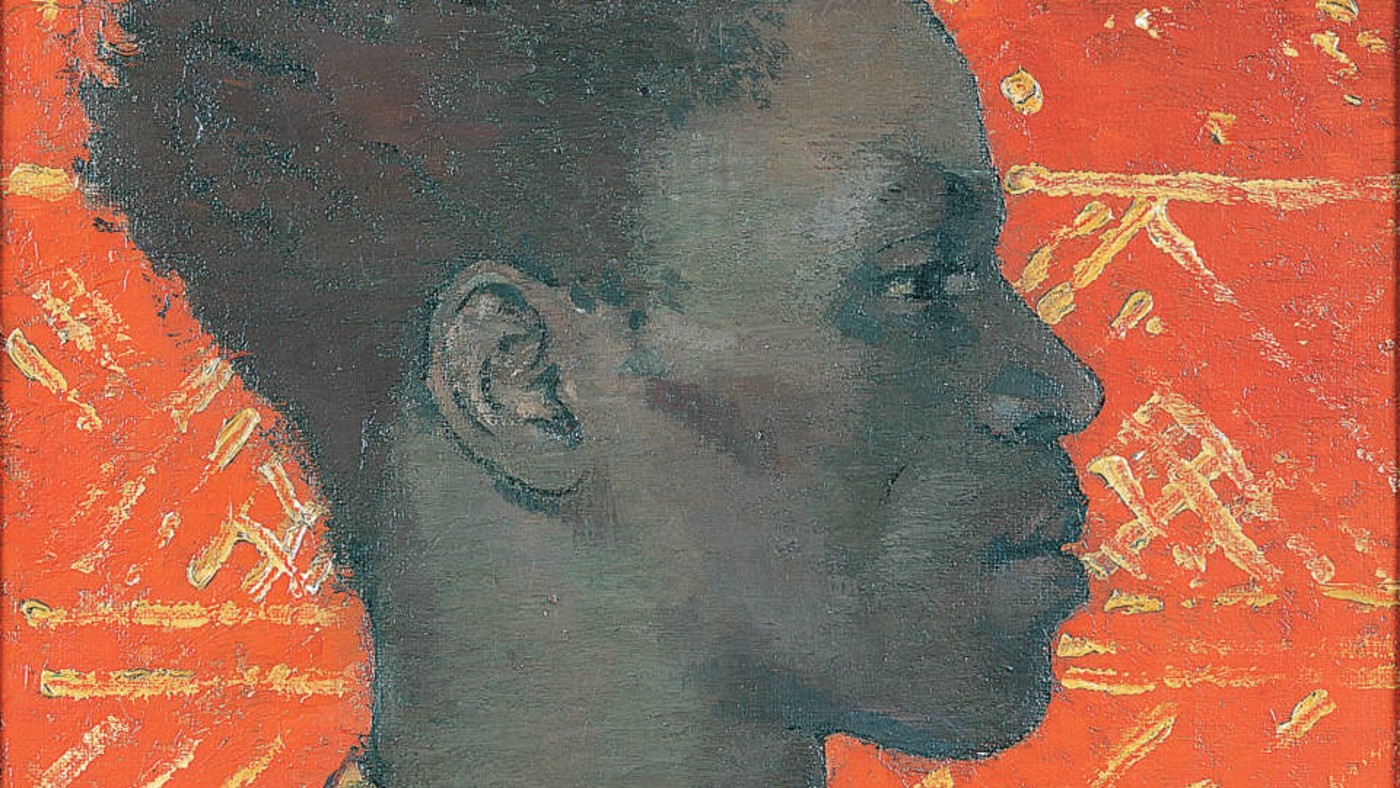Glyn Philpot: Flesh and Spirit – a show with a ‘particular, piquant flavour’
‘Comprehensive’ exhibition in Chichester seeks to re-evaluate painter’s career

A free daily email with the biggest news stories of the day – and the best features from TheWeek.com
You are now subscribed
Your newsletter sign-up was successful
In his heyday, Glyn Philpot enjoyed considerable success, said Alan Hollinghurst in The Daily Telegraph. Philpot (1884-1937) made his name as a society portraitist, depicting “the rich, the gifted and the famous” with something of John Singer Sargent’s “combination of daring ease and oldmasterly resonance”.
Then, around 1930, “at the height of his public success, he left England for Paris, had a brief revelatory immersion in Weimar Berlin, and dramatically altered his style” for something far more spare and modernist. In the decades following his early death, “he lapsed into obscurity along with his subjects”. Only a few of his works, such as his dashing wartime portrait of Siegfried Sassoon, are widely known today.
Now this “comprehensive” exhibition in Chichester seeks to re-evaluate this career, bringing together more than 80 paintings, drawings and sculptures, many of which have not been displayed in decades. It provides “a wonderful opportunity to look again at the full span of his work, in all its richness and strangeness”.
The Week
Escape your echo chamber. Get the facts behind the news, plus analysis from multiple perspectives.

Sign up for The Week's Free Newsletters
From our morning news briefing to a weekly Good News Newsletter, get the best of The Week delivered directly to your inbox.
From our morning news briefing to a weekly Good News Newsletter, get the best of The Week delivered directly to your inbox.
Philpot was both gay and a Catholic convert, and his work evinced a “constant dialogue” between his faith and his sexuality, subjects he often explored in “a quirkily contemporary way”. Remarkably, too, he became “a painter of black subjects without rival among British artists of his time”.
“Philpot appears as an artist – and a man – pulled in several directions,” said Hettie Judah in The Guardian. His talent for “flattering, somewhat old-fashioned” portraits, inspired by Velázquez and Manet, made him a “prodigy” and the youngest Royal Academician of his generation. His portrait of the “bright young thing” Loelia Ponsonby, for instance, is “awash in bias-cut satin, lush fur and gemstones”, while a likeness of the Countess of Dalkeith sees her as a “razor-cheeked waif in clouds of gauzy white”.
Yet clearly, he harboured more adventurous ambitions: in the 1930s in Paris and Berlin he began painting “the chrome, glass and glow of the transforming city”; perhaps unsurprisingly, these painting proved less successful than his previous works.
More convincingly modern are Philpot’s depictions of black men, said Mark Hudson on The Independent. Highlights here include a likeness of the singer and activist Paul Robeson and two “exquisitely sensitive portraits” of the Parisian cabaret performer Julien Zaire, one of which depicts him against a background of sleek modernist furniture.
A free daily email with the biggest news stories of the day – and the best features from TheWeek.com
More intriguing still are the numerous pictures of Henry Thomas, his Jamaican-born model, servant and friend. Jamaican Man in Profile (Henry Thomas), deservedly Philpot’s best-known picture, sees its subject in profile against “a brightly patterned” background, “the faintest of smiles playing over his lips”. Stylistically, it is a “remarkable” work of “protoPop Art” that feels decades ahead of its time.
Unusually, there’s no attempt to frame him patronisingly as a certain racial “type”. Overall, this is a “fascinating” exhibition that refuses to make assumptions about its subject. Philpot remains an enigma, giving the show a “particular, piquant flavour”.
Pallant House Gallery, Chichester (pallant.org.uk). Until 23 October
-
 Corruption: The spy sheikh and the president
Corruption: The spy sheikh and the presidentFeature Trump is at the center of another scandal
-
 Putin’s shadow war
Putin’s shadow warFeature The Kremlin is waging a campaign of sabotage and subversion against Ukraine’s allies in the West
-
 Media: Why did Bezos gut ‘The Washington Post’?
Media: Why did Bezos gut ‘The Washington Post’?Feature Possibilities include to curry favor with Trump or to try to end financial losses
-
 6 exquisite homes with vast acreage
6 exquisite homes with vast acreageFeature Featuring an off-the-grid contemporary home in New Mexico and lakefront farmhouse in Massachusetts
-
 Film reviews: ‘Wuthering Heights,’ ‘Good Luck, Have Fun, Don’t Die,’ and ‘Sirat’
Film reviews: ‘Wuthering Heights,’ ‘Good Luck, Have Fun, Don’t Die,’ and ‘Sirat’Feature An inconvenient love torments a would-be couple, a gonzo time traveler seeks to save humanity from AI, and a father’s desperate search goes deeply sideways
-
 A thrilling foodie city in northern Japan
A thrilling foodie city in northern JapanThe Week Recommends The food scene here is ‘unspoilt’ and ‘fun’
-
 Tourangelle-style pork with prunes recipe
Tourangelle-style pork with prunes recipeThe Week Recommends This traditional, rustic dish is a French classic
-
 Samurai: a ‘blockbuster’ display of Japan’s legendary warriors
Samurai: a ‘blockbuster’ display of Japan’s legendary warriorsThe Week Recommends British Museum show offers a ‘scintillating journey’ through ‘a world of gore, power and artistic beauty’
-
 BMW iX3: a ‘revolution’ for the German car brand
BMW iX3: a ‘revolution’ for the German car brandThe Week Recommends The electric SUV promises a ‘great balance between ride comfort and driving fun’
-
 Arcadia: Tom Stoppard’s ‘masterpiece’ makes a ‘triumphant’ return
Arcadia: Tom Stoppard’s ‘masterpiece’ makes a ‘triumphant’ returnThe Week Recommends Carrie Cracknell’s revival at the Old Vic ‘grips like a thriller’
-
 My Father’s Shadow: a ‘magically nimble’ love letter to Lagos
My Father’s Shadow: a ‘magically nimble’ love letter to LagosThe Week Recommends Akinola Davies Jr’s touching and ‘tender’ tale of two brothers in 1990s Nigeria